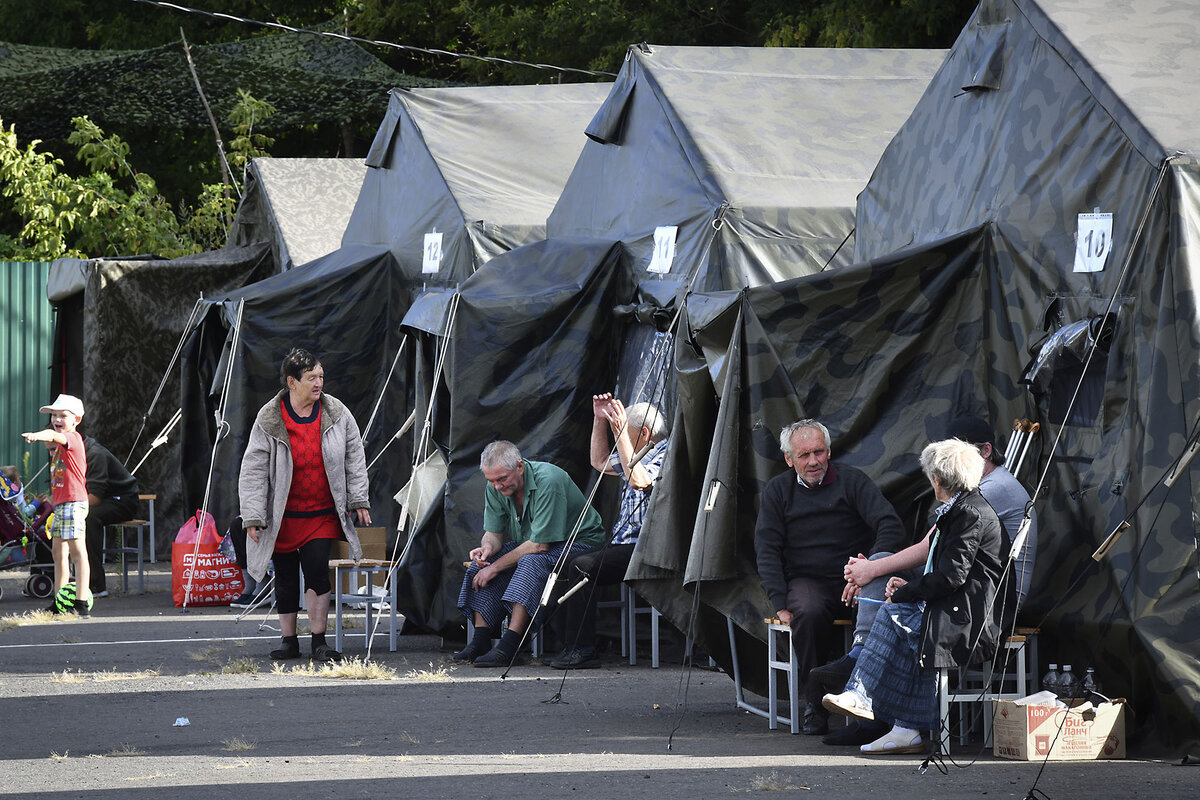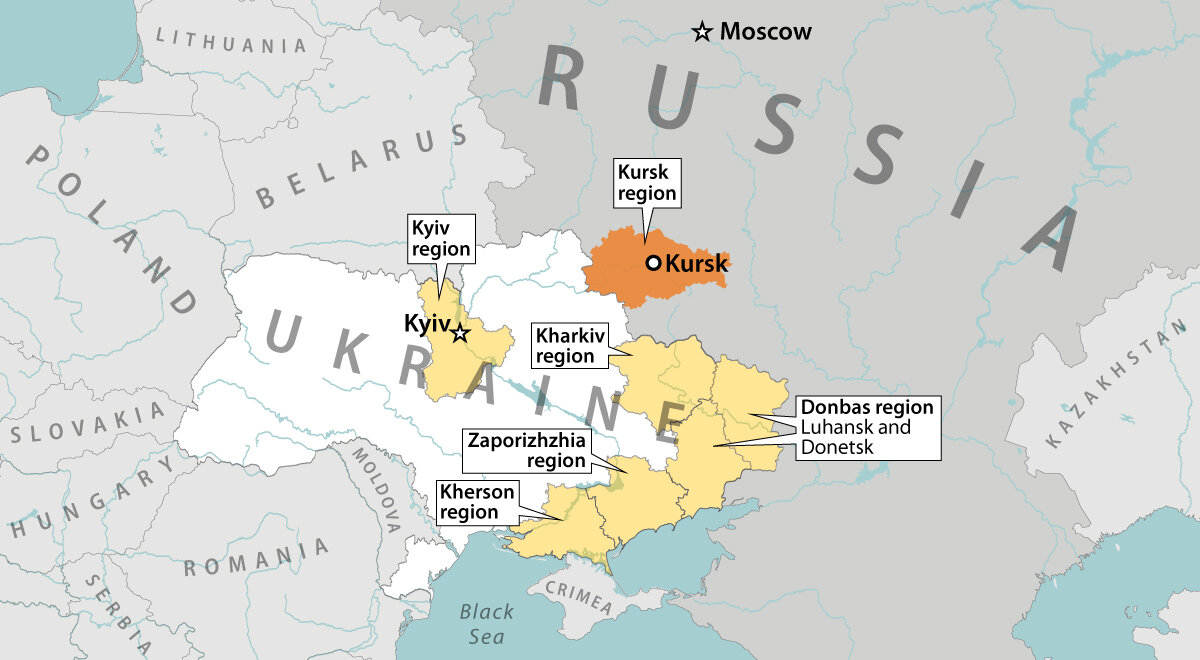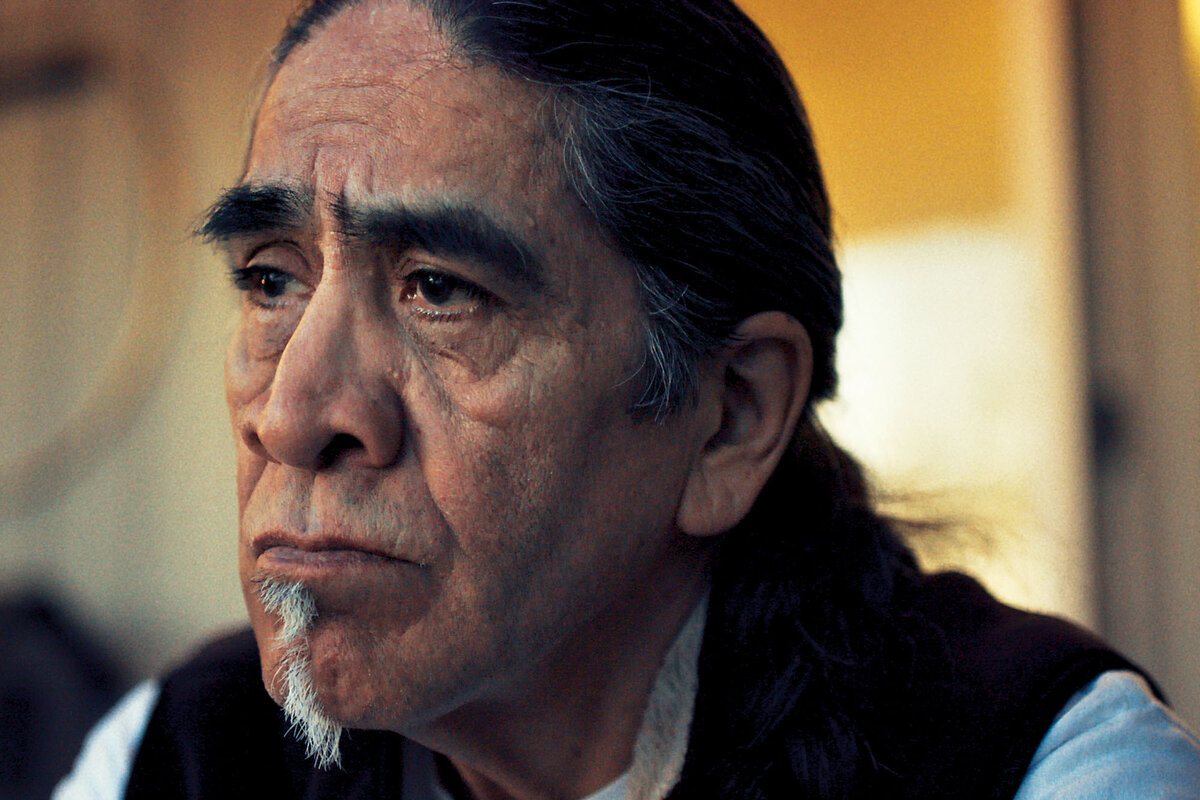Ukraine’s attack on Kursk was a surprise to both the Kremlin and the Russian public. But whether the shock will actually change Russian perceptions of the war – or its course – seems doubtful.

Why is ���Ǵ��� Science in our name?
Our name is about honesty. The Monitor is owned by The First Church of Christ, Scientist, and we’ve always been transparent about that.
The church publishes the Monitor because it sees good journalism as vital to progress in the world. Since 1908, we’ve aimed “to injure no man, but to bless all mankind,” as our founder, Mary Baker Eddy, put it.
Here, you’ll find award-winning journalism not driven by commercial influences – a news organization that takes seriously its mission to uplift the world by seeking solutions and finding reasons for credible hope.
Explore values journalism About usAlready a subscriber? Log in
Already have a subscription? Activate it
Ready for constructive world news?
Join the Monitor community.
SubscribeMonitor Daily Podcast
- Follow us:
 Clayton Collins
Clayton Collins
Today, we have two veteran writers on Ukraine, each exploring a piece of the thinking that will help drive what comes next.
It’s a triumph of geographical placement and accumulated wisdom.
Moscow-based Fred Weir, who first arrived in the former Soviet Union in 1986, takes the measure of Russian reaction to Ukraine’s surprise cross-border incursions.
Ned Temko, a longtime analyst who also reported for the Monitor from Moscow in the early ’80s and now writes our Patterns column, looks at the West’s complex calculus around responding to new twists in the 2 ½-year-old war.
If you’re committed to understanding the conflict on Europe’s eastern flank, and use context to build understanding, you’ve found your latest briefing.
Already a subscriber? Log in
Help fund Monitor journalism for $11/ month
Monitor journalism changes lives because we open that too-small box that most people think they live in. We believe news can and should expand a sense of identity and possibility beyond narrow conventional expectations.
Our work isn't possible without your support.
Today’s stories
And why we wrote them
( 5 min. read )
Today’s news briefs
• Columbia University president out: Minouche Shafik resigns after a brief, tumultuous tenure. The school, in upper Manhattan, was roiled this year by student protests that included occupation of a building by pro-Palestinian protesters.
• Rising toll in Gaza: The Health Ministry in Gaza says more than 40,000 Palestinians have been killed in the Israel-Hamas war. The announcement comes during new efforts to broker a cease-fire in the conflict.
• Action on Google: A U.S. district judge indicates he will order changes to Google’s Android app store, perhaps including a requirement that Google’s Play Store for Android phones offer consumers the option to download from alternative app stores.
• Race riot recognized: President Joe Biden is expected to sign a proclamation designating a national monument in Springfield, Illinois, at the site of a 1908 race riot. The ceremony comes 5 1/2 weeks after Sonya Massey, a Black woman, was killed by a sheriff’s deputy in her Springfield home after calling 911 for help.
• State Fair of Texas to ban guns: The decision follows a shooting there last year. The state’s Republican attorney general warned that he would file a lawsuit if the ban was not rescinded, and more than 70 lawmakers signed a letter this week urging the fair to reconsider the ban.
( 7 min. read )
JD Vance’s attacks on “woke capital” go beyond ordinary populism: He’s said Jeff Bezos sought to fund riots and companies don’t want workers having children.
Patterns
( 4 min. read )
Will Ukraine’s surprise advance into Russian territory convince its allies to lift their restrictions on how their military aid can be used? And could that turn the tide of the war?
( 5 min. read )
As rents and house prices have continued to rise across the country, few places feel the strain as much as New York does. Mayor Eric Adams proposes broad rezoning to expand options for the city's middle-class workers.
Film
( 3 min. read )
“Sugarcane” casts a woeful, compassionate eye on the sordid history of compulsory education of Indigenous Canadian children, the Monitor’s film critic writes. In this powerful documentary, the survivors of atrocities want to move beyond their rage.
The Monitor's View
( 2 min. read )
On Aug. 6, Ukraine’s military became the first foreign army to invade Russia since World War II. While the results of this audacious incursion remain uncertain, it may someday be seen as one of history’s greatest campaigns for a people’s freedom. Oddly enough, many Russians in recent days began their own counteraction for freedom, with possibly a similar effect on ending a war now in its third year.
They have been in open revolt against a government move to shut down one of their few windows to the free world: YouTube.
Since mid-July, Russians have reported major outages of the video streaming service on their home computers. “Russians haven’t taken calmly to this,” reports Meduza, an independent news site run by Russians in nearby Latvia. In big cities, people filed applications – all denied – for street protests. More than 1 million people signed an appeal to reverse the outages.
Even top officials close to the Kremlin complained – about the potential loss of jobs as well as the loss of education videos and entertainment shows, especially for children. An estimated two-thirds of Russians have relied on YouTube for its services.
While most other foreign social media have been banned or restricted since the war began, President Vladimir Putin had been allowing access to YouTube. Partly this was because of its popularity. But in addition, the government has used the site to spread pro-war videos.
Yet as cyber statecraft expert Justin Sherman told Time, “If you start losing the ability to spread misinformation and propaganda, but people can still use it to spread truth and organize, then all of a sudden, you start wondering why you’re allowing that platform in your country in the first place.”
It seems many Russians worry far less about the Ukraine counteroffensive and more about the loss of access to the truth about the war along with many other benefits available on YouTube.
“Live not by lies,” advised Aleksandr Solzhenitsyn, one of Russia’s most famous dissidents, a half-century ago. Similar advice from other truth-seeking dissidents helped fell the Soviet Union in 1991. Perhaps the current demand by Russians for the truth easily found on YouTube and similar sites may end Mr. Putin’s war on Ukraine.
A ���Ǵ��� Science Perspective
Each weekday, the Monitor includes one clearly labeled religious article offering spiritual insight on contemporary issues, including the news. The publication – in its various forms – is produced for anyone who cares about the progress of the human endeavor around the world and seeks news reported with compassion, intelligence, and an essentially constructive lens. For many, that caring has religious roots. For many, it does not. The Monitor has always embraced both audiences. The Monitor is owned by a church – The First Church of Christ, Scientist, in Boston – whose founder was concerned with both the state of the world and the quality of available news.
( 3 min. read )
When we’re receptive to the spiritual inspiration within the Bible’s pages, we learn the healing truth of God’s goodness.
Viewfinder

A look ahead
Thanks for jumping into today’s Daily. Tomorrow, we’ll take a look at “age tech.” It’s not what nagging stereotypes about older consumers might suggest – it’s a realm that’s growing to include products geared toward social connection, gaming, home-sharing, and more.









